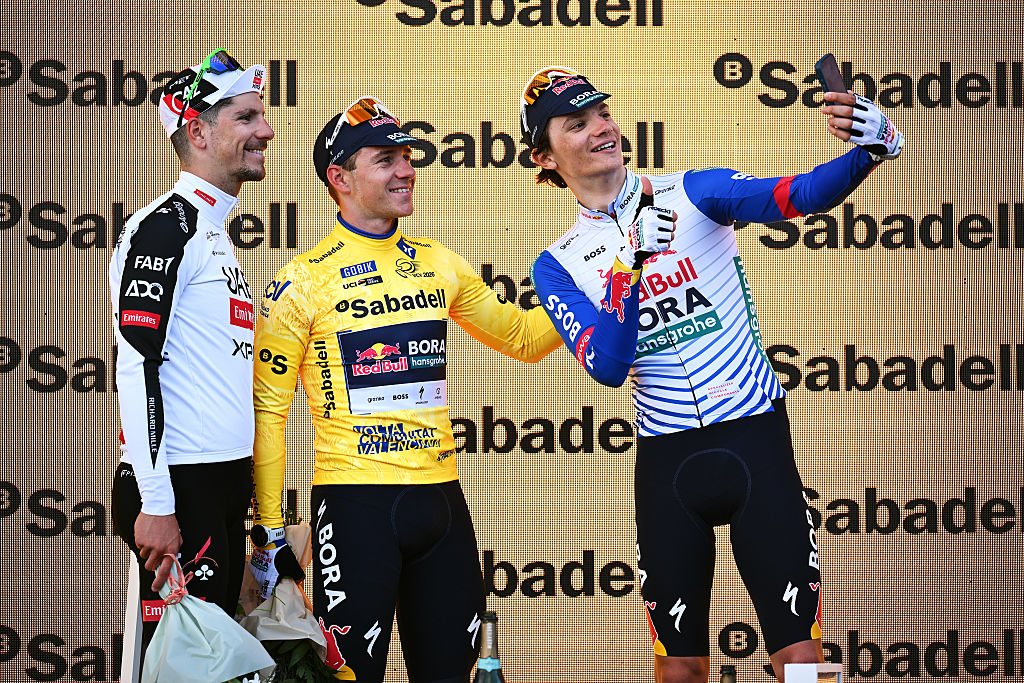Tour de France 2018 route reactions from Froome, Contador and Quintana
'We've got a massive challenge next year,' says Froome
The latest race content, interviews, features, reviews and expert buying guides, direct to your inbox!
You are now subscribed
Your newsletter sign-up was successful
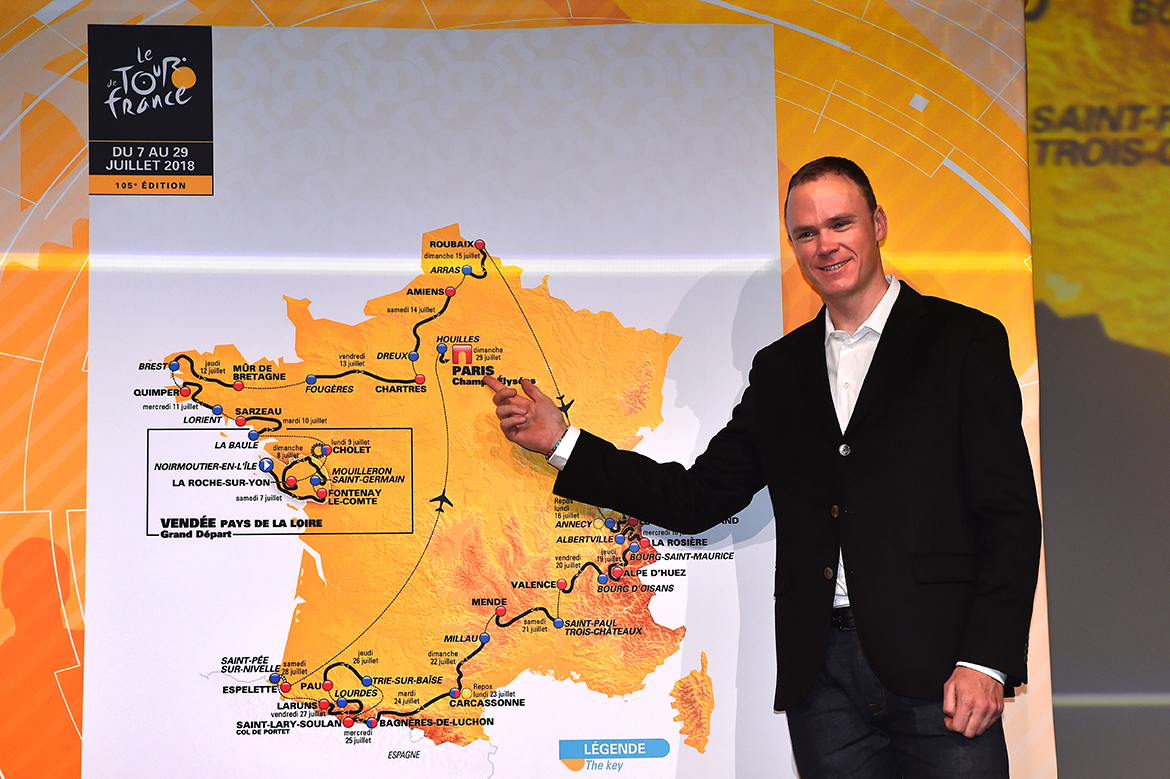
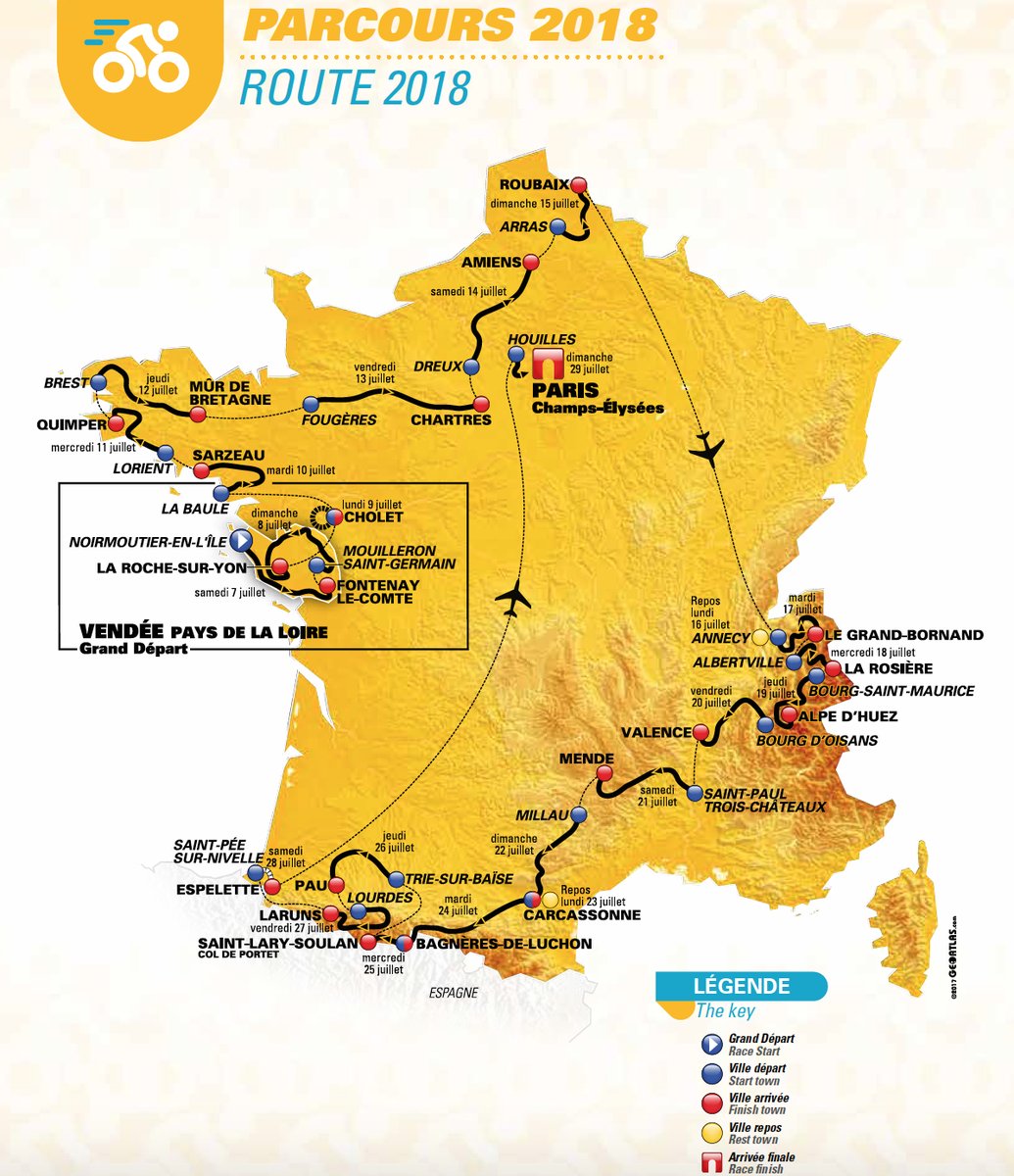
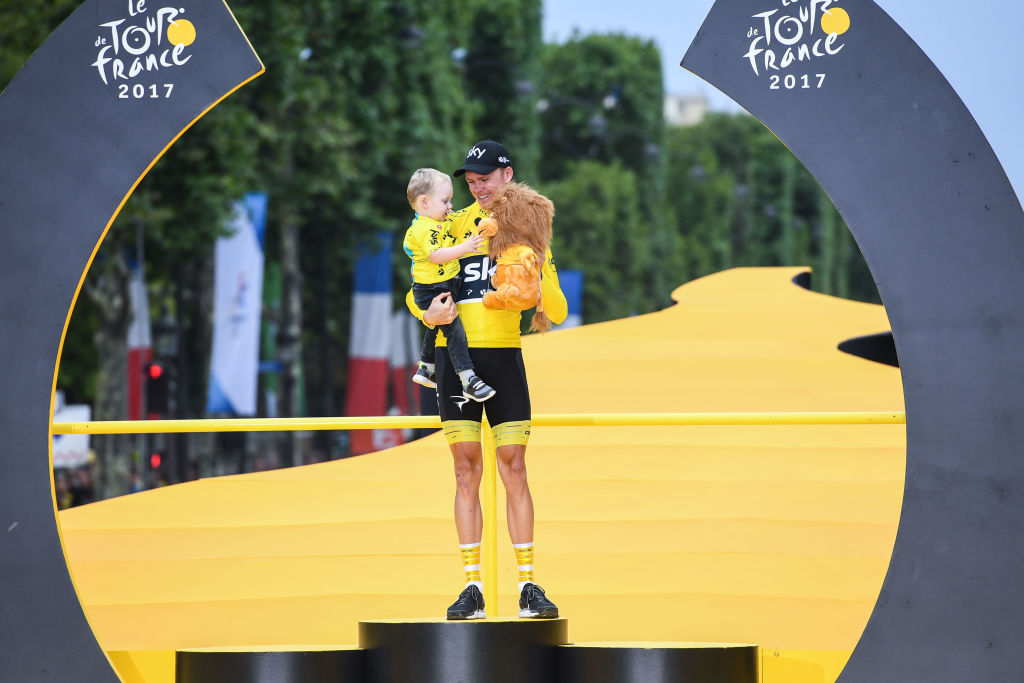
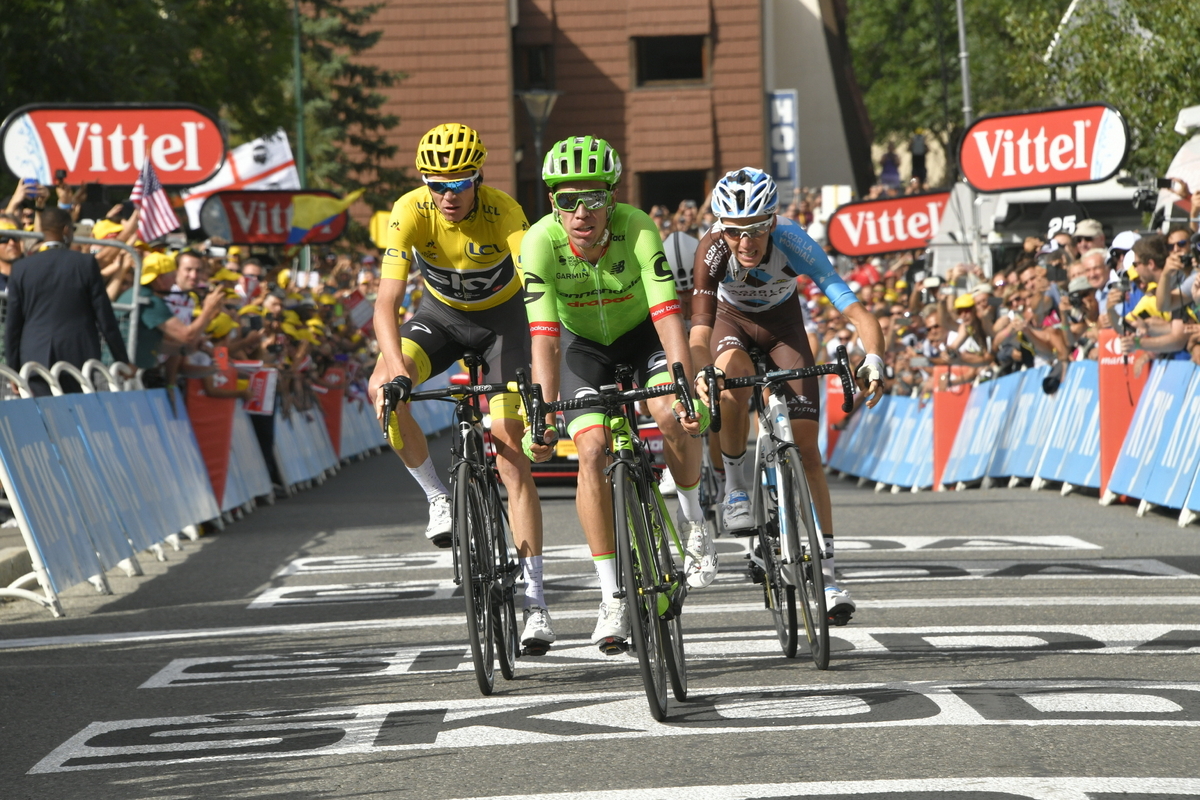
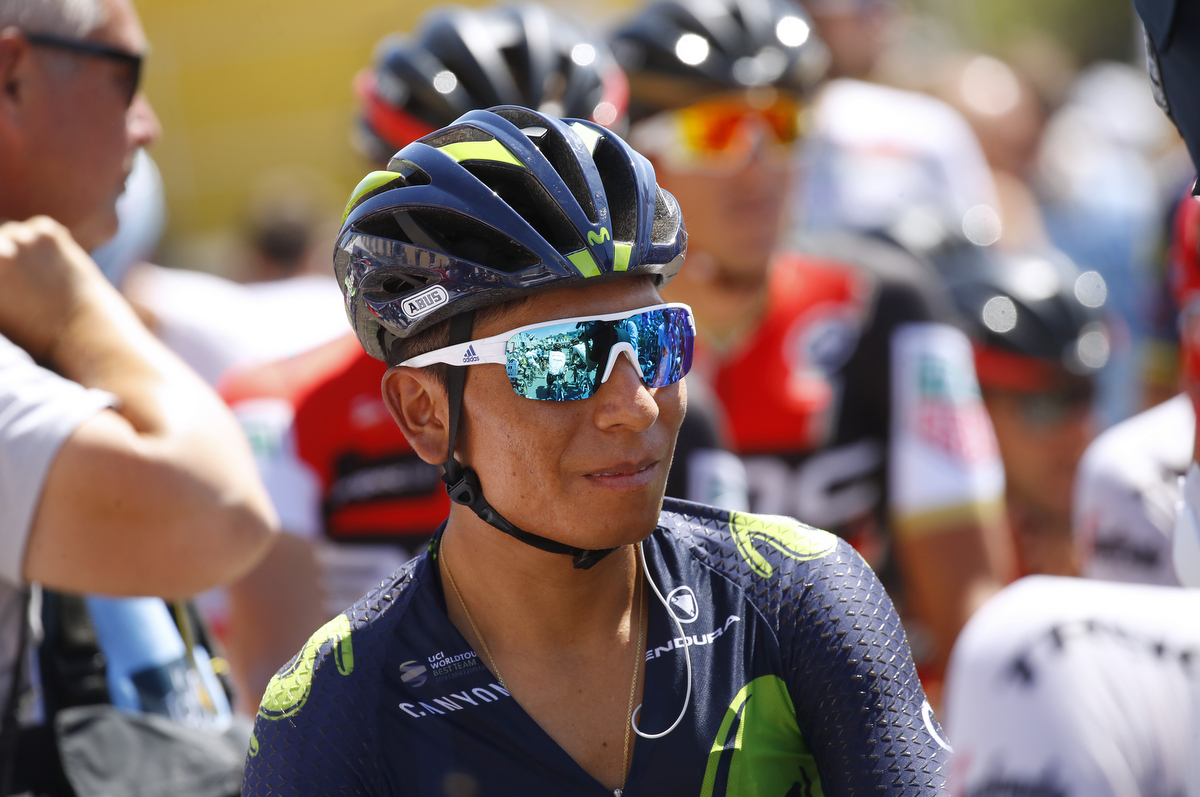
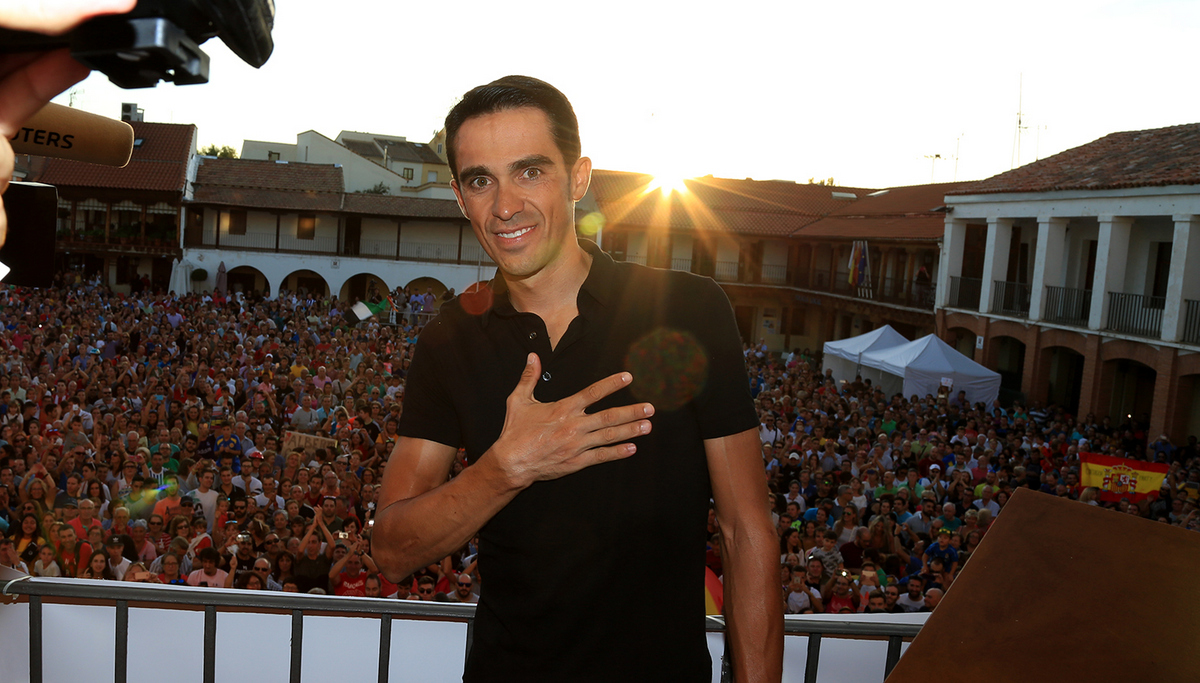
The route for the 2018 Tour de France was officially revealed on Tuesday in Paris, where race director Christian Prudhomme presented a testing first half of the race in the northern France ahead of the mountains of the Alps and Pyrenees in the second and third weeks.
The 3229km route includes three summit finishes, a 35km team time trial and a 31km individual time trial spread across the 21 stages. 2017 winner Chris Froome and other big-name riders were in attendance and shared their first impressions of the route.
Chris Froome (Team Sky)
It’s still very early to say exactly what we’re up against, but I wouldn’t expect anything different from the organisers. We’ve got a massive challenge for next year, it’s a Tour de France that really tests every aspect of cycling. We’ve got gravel roads, cobbles, a lot of windy dangerous stages in the first half, then obviously we go into the Alps and the Pyrenees for some brutal mountain stages as well.
[The flat first week] is going to make the Tour de France very nervous, especially until we reach the Alps and the first summit finishes, it’s going to be a very nervous race. That region, in the north-western part of France is known to be very windy so I’m sure that will play a big part as well
I think the queen stage will most probably be Alpe d’Huez, with around 5000m of climbing, so I’m going to say that will be the biggest challenge.
[On cobbled stage 9] I certainly didn’t have any plans on racing Paris-Roubaix [in 2018] but I might have to re-evaluate that now.
The latest race content, interviews, features, reviews and expert buying guides, direct to your inbox!
Nairo Quintana (Movistar)
There are lots of nice stages, it’s a route I quite like. There are lots of mountains that will suit me, and the time trial isn’t that long. The pavé stage will be difficult, it’s a day where you’ll need a good team around you.
Some of the stages in the north, it’s true, they are tough, but I’ve ridden there a lot, and I have teammates who have the characteristics for those stages, so I will be well supported there. On the cobbled stage we’ll have to be particularly careful.
Alberto Contador (recently retired)
It’s a very attractive route, with a bit of everything, including a team time trial. The cobbled stage will be very good to watch but awful for the riders. The short mountain stage is also very interesting – I wish they’d done something like that sooner! That will be a great one to watch, with some really tough climbs.
The time trial, I don’t think it’s going to be very important in this Tour. Froome and his team are enormously strong, but on this route there are stages where things can go wrong – anything can happen on the day of cobbles, and the 65km stage will be a day where you cannot control things.
Thierry Gouvenou (Tour de France technical director)
The transition into the mountains could be very brutal. That’s where the GC riders risk losing the most. Some of them won’t have dealt well with the first 10 days on the flat. We will already know a lot of truths about this Tour on the evening of the first mountain stage.
We’ve noticed that high percentage gradients make the difference, as well as the format of the stages. We’ve realised that if you vary the distances, you can disrupt the tactics of teams and riders a little bit.
Romain Bardet (AG2R La Mondiale)
It’s a route for all-rounders. It’s not enough to be the best on one terrain, you have to excel everywhere. There’s a team time trial so the collective element will be important, and there’s also a 60km stage where the leaders will be exposed early. It’s a varied, balanced route.
There are traps for everybody, not just for Froome, with the cobbled stage and the many stages that are exposed to the wind. There are lots of places where the race could break up and riders could lose time.
There’s a day with 5,000 metres of climbing in the Alps, and another stage with almost 4,000 metres. I like the marathon stages like that because they are part of the legend of the Tour, and they add another, historical dimension to the race.

